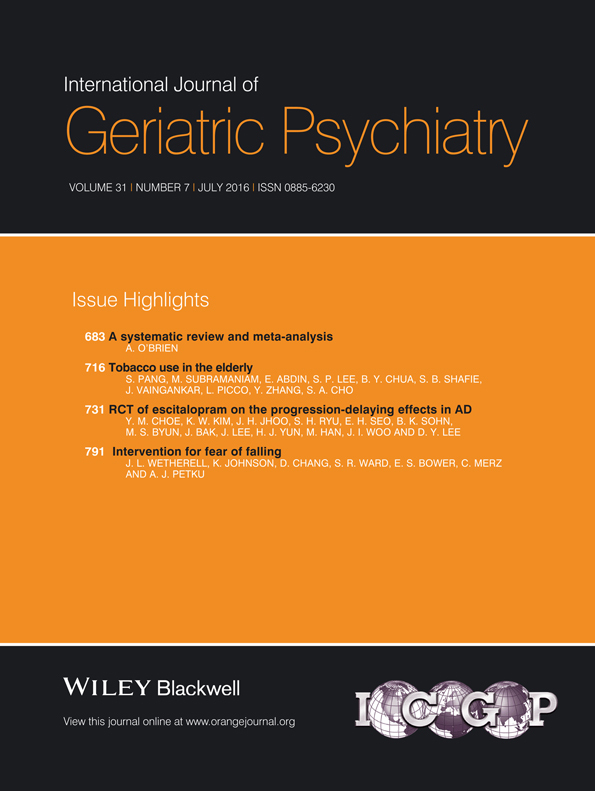Reducing suicidal ideation in home health care: results from the CAREPATH depression care management trial
Abstract
Objectives
The study evaluated the effectiveness of a depression care management intervention in reducing suicidal ideation (SI) among home health patients.
Methods
Data come from the cluster-randomized effectiveness trial of the Depression Care for Patients at Home (Depression CAREPATH), an intervention that integrates depression care management into the routine nursing visits of Medicare home health patients screening positive for depression. Patients were interviewed at baseline, 3, 6, and 12-month follow-up. SI was measured using the Hamilton Rating Scale for Depression item. We compared likelihood of any level of SI between intervention and usual care patients using longitudinal logistic mixed-effects models.
Results
A total of 306 eligible patients enrolled in the trial. Among them, 70 patients (22.9%) reported SI at baseline. Among patients with SI, patients under the care of nurses randomized to CAREPATH were less likely to report SI over the study period (odds ratio = 0.51, 95% CI; 0.24–1.07), with 63.6% of usual care versus 31.3% of CAREPATH participants continuing to report SI after one year. Baseline major depression, greater perceived burdensomeness, and greater functional disability were associated with greater likelihood of SI.
Conclusion
SI is reported in more than 10% of Medicare home health patients. The Depression CAREPATH intervention was associated with a reduction in patients reporting SI at one year, compared to enhanced usual care. Given relative low burden on nursing staff, depression care management may be an important component of routine home health practices producing long-term reduction in SI among high-risk patients. Copyright © 2015 John Wiley & Sons, Ltd.




